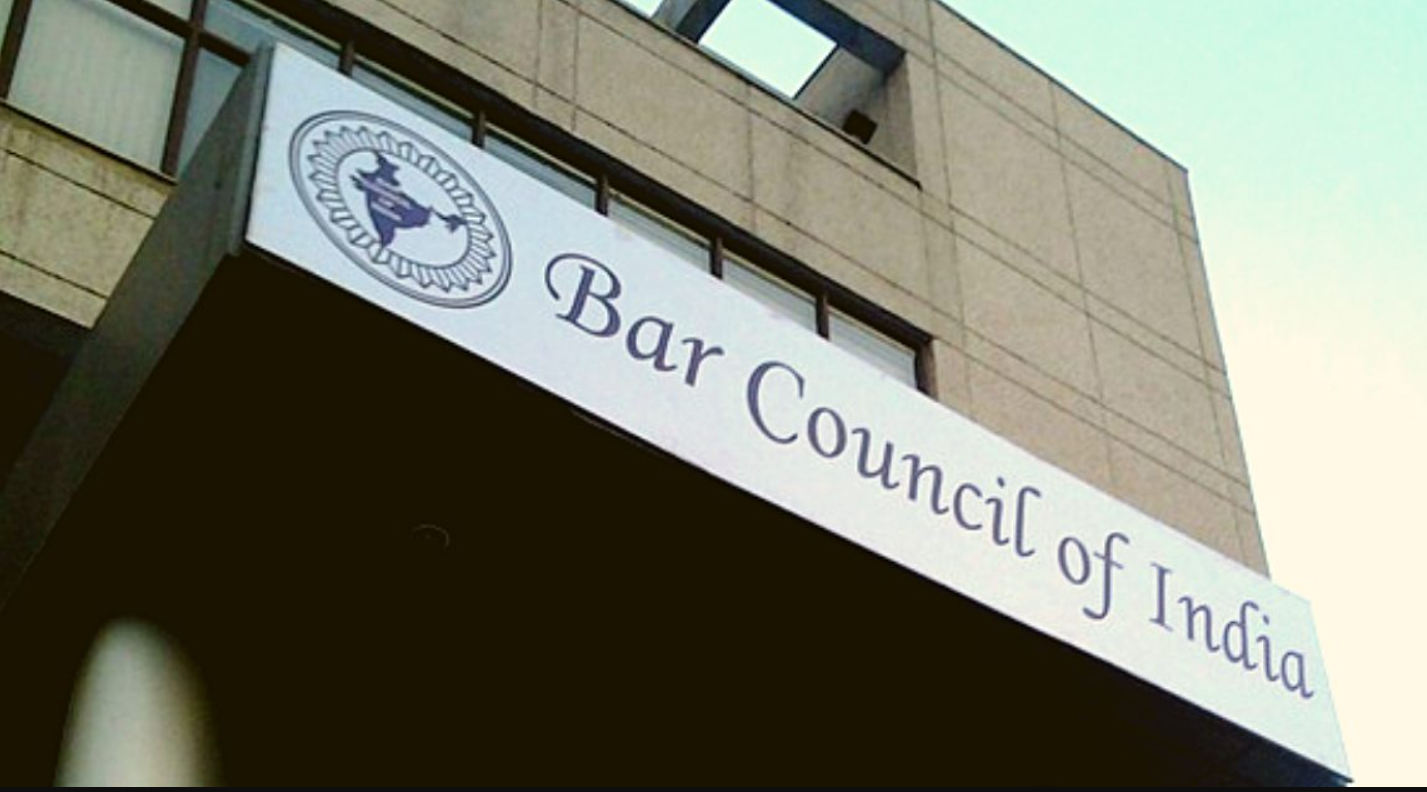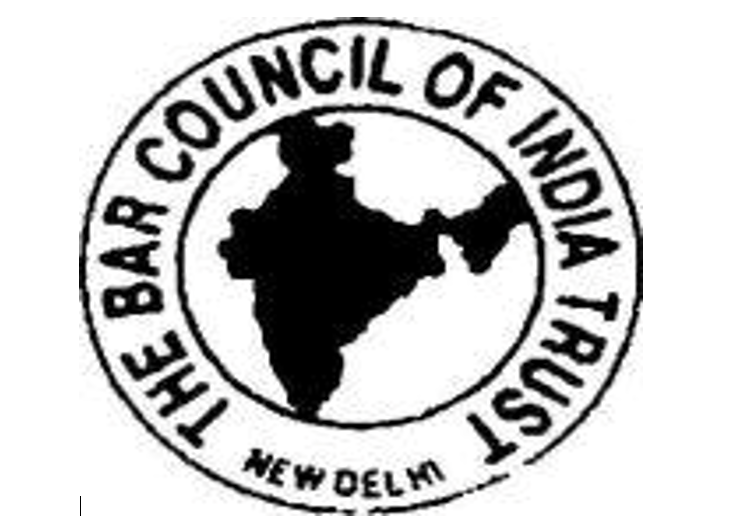- Umang Sagar
- Law, Recent article
The Bar Council Of India

Introduction
The Bar Council of India is a statutory organisation that oversees legal practice and education in India. It was founded under section 4 of the Advocates Act 1961. Its members are chosen from among India’s attorneys and thereby represent the Indian bar. It establishes professional behaviour rules and decorum, as well as having disciplinary authority over the bar. It also establishes legal education requirements and recognises colleges whose law degrees would qualify students to practise law after graduation. The Indian Bar Council is a statutory organisation that governs and represents the Indian legal profession. The Advocates Act of 1961 was passed by Parliament. It establishes professional behaviour rules and decorum, as well as having disciplinary authority over the bar.
It also establishes legal education requirements and recognises colleges whose law degrees would qualify students to practise law after graduation. There shall be a Bar Council for the territories to which this Act extends, known as the Bar Council of India, consisting of the following members:
(a) The Attorney-General of India, ex officio;
(b) The Solicitor-General of India, ex officio;
(c) One member elected by each State Bar Council from among its members.
(d) No individual shall be qualified for election as a member of the Bar Council of India unless he possesses the qualifications indicated in the proviso to sub-section (2) of section 3 of the Act, according to section 4(1-A).
- According to Section 4(2) of the Act, the Bar Council of India must elect a Chairman and a Vice-Chairman in the manner provided by the Council. A person holding office as Chairman or Vice-Chairman of the Bar Council of India immediately before the commencement of the Advocates (Amendment) Act, 1977 (38 of 1977), shall cease to hold office as Chairman or Vice-Chairman, as the case may be, on the commencement of the Advocates (Amendment) Act, 1977 (38 of 1977). Provided, however, that such person shall continue to perform the functions of his office until the Chairman or Vice-Chairman of the Council, as the case may be, is chosen following the commencement of the Advocates (Amendment) Act, 1977 (38 of 1977).
History

The ‘All India Bar Committee,’ led by S. R. Das, published a report in March 1953 proposing the formation of a state bar council and an all-India bar council as an apex body. It was proposed that an all-India bar council control the legal profession and define legal education standards. The Law Commission of India was tasked with compiling a report on judicial reforms and assisting India in reforming justice and equality throughout the country. The Advocates Act was enacted in 1961 to carry out the recommendations of the ‘All India Bar Committee’ and the ‘Law Commission.’ C. Setalvad and M. C. Setalvad The inaugural chairman and vice chairman, respectively, were K. Daphtary and K. Daphtary. In the year 1963, C. K. Daphtary was named Chairman, while S. Daphtary was named Vice Chairman. Vice-Chairman K. Ghose was appointed. The term of office of a member of the Bar Council of India elected by the State Bar Council is two years from the date of his election 2 [or until he ceases to be a member of the State Bar Council, whichever comes first];
And (ii) in any other case, is for the period for which he holds office as a member of the State Bar Council:
Provided, however, that each of these members shall continue to serve on the Bar Council of India until his replacement is chosen. The Bar Council of India must convene at New Delhi or at such other place as it may choose for reasons to be documented in writing, according to Section 10-A of the Act. A State Bar Council shall convene at its headquarters or at any other location determined by the Council for reasons to be noted in writing. Other than disciplinary committees, all committees established by the Bar Councils will convene in the separate Bar Councils’ offices. Except for the disciplinary committees, every Bar Council and its committees must follow any rules of procedure that may be established for the transaction of business at their sessions. The disciplinary committees established under section 9 shall meet at such times and locations as may be prescribed, and shall follow such rules of procedure as may be prescribed in relation to the conduct of business at their meetings.
According to Section 10-B of the Act, an elected member of a Bar Council is deemed to have vacated his office if he is declared by the Bar Council of which he is a member to have missed three consecutive meetings of such Council without sufficient excuse, or if his name is removed from the roll of advocates for any reason, or if he is otherwise disqualified under any rule made by the Bar Council of India.
Functions

The Bar Council’s regulatory and representational mission is outlined in Section 7 of the Advocates Act of 1961. The Bar Council’s responsibilities include:-
- Establish guidelines for advocates’ professional behavior and manners.
- Specify the procedure that disciplinary panels must follow.
- Advocates’ rights, privileges, and interests must be protected.
- Encourage and promote legal reform.
- Deal with and resolve any case presented to you by the State Bar Council.
- Promote legal education and establish legal education standards.
- Determine which colleges need a law degree as a prerequisite for enrolment as an advocate.
- Organize famous jurists to speak at seminars on legal themes, and publish legal journals and publications.
- Organize and give underprivileged people legal assistance.
- Recognize foreign legal qualifications for admission as an advocate gained outside of India.
- Manage and invest the Bar Council’s money.
- Provide for the election of members to serve on Bar Councils.
Enrolment Of Advocates

- On the lists of the state bar councils, eligible people with a recognized legal degree are admitted as advocates. The Advocates Act of 1961 gives state bar councils the authority to set their own procedures for enrolling advocates. A candidate’s application may be scrutinised by the Council’s enrolment committee. Those who have been admitted as advocates by a state bar council are eligible to take the Bar Council of India’s All India Bar Examination.The state-enrolled advocate receives a ‘Certificate of Enrolment’ after passing the All India Bar Examination, which allows him or her to practise law as an advocate in any High Court or lower court in India. To practise law before the Supreme Court of India, however, advocates must first sit for and pass the Supreme Court Advocate on Record Examination, which is administered by the Supreme Court.
Committees

Various committees of the Bar Council of India provide recommendations to the council. The members of these committees are chosen from among the Council members. The Executive Committee is responsible for topics such as finance management, employee affairs, accounting, work allocation, council affairs management, audit, library, and legal publications distribution of work. The Executive Committee is now chaired by Apurva Kumar Sharma of Assam, and vice-chaired by N. Manoj Kumar of Kerala.
Legal Education Committee: This committee makes recommendations to the BCI on legal education issues, establishes legal education standards, visits and inspects universities, recommends pre-requisites for foreign advocates practicing law in India, and recommends recognition or discontinuance of a university’s law degree. The Legal Education Committee is chaired by Justice A.P. Mishra, a former Supreme Court of India judge.
Disciplinary Committee: This committee considers applications from individuals seeking summary dismissal of their accusations against advocates for professional misconduct by state bar councils, as well as appeals from the state bar councils’ disciplinary committees.
Advocate Welfare Association: This body reviews proposal for welfare assistance submitted by advocates. It checks the application and approves the funding. The Advocates Welfare Fund Act of 2001 certifies the Advocates Welfare Committee.
- Legal Aid Committee: The Legal Aid Committee assists persons in need of legal representation.
- Building Committee: The Building Committee is in charge of putting up the Council’s offices.
- The Rules Committee is in charge of reviewing the Council’s rules and regulations.
- Finance Committee, Special or Oversee Committee, and All India Bar Examination Committee are the other committees.
Directorate Of Legal Education

The Bar Council of India has formed the Directorate of Legal Education to organize, operate, conduct, hold, and administer the following:-
- Legal Education on a Continuous Basis
- Professional education
- Advanced professional training courses
- Indian students seeking registration after earning a law degree from a foreign university can enroll in this program.
- Professional Legal Education and Standardization Research
- Workshops and seminars
- Legal Research
- Any additional task that the Legal Education Committee and the Bar Council of India may prescribe to it.
Presidents Who Already Served On That Position
| Name of the Member | Position |
| Manan Kumar Mishra | Chairman, Bar Council of India |
| Satish Abarao Deshmukh | Executive Committee |
| S.Prabakaran Senior Advocate | Vice-Chairman, Bar Council of India |
| D.P. Dhal | Managing Trustee, BCI Trust |
| Suresh Chandra Shrimali | Co-Chairman |
| K. K. Venugopal | Attorney General of India, ex-officio member |
| Tushar Mehata | Solicitor General of India ex-officio member |
| Shailendra Dubey | Member |
| Sadhashiva Reddy | Co-Chairman |
| Ved Prakash Sharma | Co-Chairman |
| Apurva kumar Sharma | Chairman, Executive Committee |
| N. Manoj Kumar | Member, Vice Chairman, Executive Committee |
| Ramireddy | Member |
| Prashant Kumar | Member |
| Dilip Patel | Member |
| Deshraj Sharma | Member |
| Partap Singh | Member |
| Vishnuvardhan Reddy | Member |
| Srinath Tripati | Member |
| Sunil Gupta | Member |
| Ashok Dev | Member |
Controversy Regarding Bar Council

‘Govt. will be informed that forum endorses HC verdict’
- The Bar Council of Kerala (BCK) chairman, Joseph John, has said that the council has no plans to appeal to the Supreme Court against the Kerala High Court’s decision demanding a CBI investigation into the theft of funds from the Advocate Welfare Fund. He added in a statement released here on Monday that the BCK has taken the effort to have the theft that occurred between 2007 and 2015 probed by the Vigilance and Anti-Corruption Bureau (VACK).
Will Cooperate
The council said it would completely assist with the CBI investigation because it wanted to know everything there was to know.
Nobody in the council, he claimed, had urged that an appeal be lodged. Some members were attempting to create a smoke cover by inflaming the matter. He pointed out that it would have been improper for the Advocate General to make a recommendation to the government at the bar council meeting when he was present.
The BCK would advise the government as quickly as possible that the council had backed the High Court’s decision. He stressed that the council would not let those who had defrauded attorneys go free.
Disciplinary Proceedings

The question of why and when these disciplinary processes are started arises. As previously said, no lawyer may arbitrarily create their own paths in order to obtain the desired conclusion, or to put it another way, “win the case.” Misconduct is a broad phrase that refers to behaviours that violate professional and social norms of morality and ethics. In situations of wrongdoing, the Advocates Act of 1961 governs disciplinary actions.
Although the Act doesn’t define ‘misconduct,’ the Supreme Court has interpreted it in cases like State of Punjab and Others vs. Ram Singh Ex. Constable, Probodh Kumar Bhowmick Vs. The University of Calcutta, and B.C. Chaturvedi Vs. Union of India. The Apex Court, in the matter of NoratanmalChouraria versus M.R. Murli & Anr, declared, “…Misconduct… is broad enough to encompass any illegal act or omission, whether done or omitted intentionally or accidentally.” ‘Irregular behaviour, purposeful misbehaviour, or willful breach of a norm of standard or behaviour’ is what it signifies. Misconduct is defined as “a breach of some established and specific norm of action, with no discretion left to save as circumstances may dictate; it is a violation of definite law.”
It went on to say, “A member of the noble legal profession is required to uphold a high standard in a dignified and determined way. The level that members of the legal profession must uphold must be commensurate with the grandeur of the profession. A lawyer is required to follow the rules that make him deserving of the community’s trust in him as a court official.” Intended delay in initiating a claim, handing false papers to clients/court/opposite party, scamming vulnerable clients, contempt of court, bribery, deceiving, appearing for both sides, and so on are examples of advocate misconduct.
All India Bar Examination

The Bar Council of India decided on April 10, 2010, to hold an All India Bar Examination to assess an advocate’s competency to practice law. In order to practice law, an advocate must pass this test. This biennial examination puts advocates to the test on both substantive and procedural law. The syllabus for this test must be made public at least three months prior to the exam. An attorney may attend the examination as many times as he or she wishes. If the attorney passes the test, he or she will be granted a Certificate of Practice Law that will be valid across India. It is stated that all law students graduating in the academic year 2009-2010 and enrolled as advocates under Section 24 of the Advocates Act, 1961 must take the Bar Examination.
The Executive Committee is the Council’s executive authority, and it is responsible for carrying out the Council’s resolutions.
Top 13 Interesting Facts About Bar Council
Members of the Executive Committee are chosen from the Bar Council of India’s membership. The Chairman and Vice-Chairman are chosen by the committee.
The Executive Committee has the following authority:-
Managing the Council’s finances.
To invest the Council’s finances in accordance with the Council’s instructions from time to time.
To provide staff members with leave other than casual leave.
To establish books of account, records, and files for the appropriate administration of the Council’s business.
To appoint and manage members of the workforce, as well as to set their working conditions.
Appointing auditors and determining their salary.
To study the yearly audit report and present it to the Council for its consideration, along with any comments.
To keep a library and, on the Council’s orders, to publish any periodical, treatise, or booklet on legal topics.
To prepare and present the yearly administration report and the statement of account to the Council.
To ensure that the office and its registers are properly inspected each year.
To authorize the Secretary to spend up to a certain amount within certain conditions.
To establish travel and other allowances for members of the Council’s committees and staff personnel.
To transfer any of its aforementioned rights to the Chairman and/or Vice-Chairman.
Some FAQs Or Also Ask Question
What do you mean by the Bar Council of India?
Bar Council of India The Bar Council of India is a statutory body that regulates and represents the Indian bar. It was created by Parliament under the Advocates Act, 1961. It prescribes standards of professional conduct, etiquettes and exercises disciplinary jurisdiction over the bar.
Who is the first Bar Council of India?
The Bar Council of India is a statutory body established under section 4 of the Advocates Act 1961 that regulates the legal practice and legal education in India. Its members are elected from amongst the lawyers in India and as such represent the Indian bar. It prescribes standards of professional conduct, etiquette and exercises disciplinary jurisdiction over the bar. It also sets standards for legal education and grants recognition to Universities whose degree in law will serve as a qualification for students to enroll themselves as advocates upon graduation.
What is Bar Council in law?
The Bar Council of India is a statutory body established under section 4 of the Advocates Act 1961 that regulates the legal practice and legal education in India. Its members are elected from amongst the lawyers in India and as such represent the Indian bar. It prescribes standards of professional conduct, etiquette and exercises disciplinary jurisdiction over the bar. It also sets standards for legal education and grants recognition to Universities whose degree in law will serve as a qualification for students to enroll themselves as advocates upon graduation.
What is the role of the Bar Council?
The Bar Council represents barristers and acts as a voice for the profession on an increasing number of issues, including the administration of justice and relations with Government, the European Union, legal professions in other countries and other organisations with common interests.
Why is it called Bar Council?
The Bar Council of India is a statutory body established under the section 4 of Advocates Act 1961 that regulates the legal practice and legal education in India. Its members are elected from amongst the lawyers in India and as such represents the Indian bar. It prescribes standards of professional conduct, etiquettes and exercises disciplinary jurisdiction over the bar. It also sets standards for legal education and grants recognition to universities whose degree in law will serve as a qualification for students to enroll themselves as advocates upon graduation.



